Ecotopia or Ecological Collapse? An InFocus Event Considers the Odds
It was an ironically warm February evening for Moravian College’s InFocus event, “Paths to Sustainability,” to address sustainable energy and the future of global warming and climate change. The event, which featured a joint lecture by Moravian professor Tom Egan and Muhlenberg professor Christopher Borick, was part of the College’s broader theme this year of sustainability.
Dr. Egan teaches economics and business for both undergraduate and MBA-level courses, and Dr. Borick is the director of the Muhlenberg College Institute of Public Opinion. Both are concerned about environmental policy and issues regarding climate change.
Dr. Egan began by defining several obstacles to achieving global sustainability, including population growth, species decline, and advancing technology. The most worrisome of those obstacles, according to Egan, is the lack of universal consensus on the importance of attaining global sustainability, which Egan said was vital if we wanted to stave off environmental disaster worldwide.
Professor Egan examined several ways to achieve sustainability, as laid out by the Tellus Institute, a Boston-based nonprofit organization that promotes the transition to sustainable societies around the globe. Among the positive strategies it examines are localizing capitalist activities through co-ops, strengthening the role of the United Nations, and creating “commonwealth nature trusts.”
Egan concluded his talk by outlining a number of Tellus forecasts about how the planet — and its human inhabitants — might fare in the next century. The forecasts ranged from “everything will be okay” to the more frightening “barbarization” and total breakdown of civilization. The direction we head is up to us, Egan said.
Finally, the baton was passed to Professor Borick, who discussed the public consensus on environment and sustainability issues, as well as the current political milieu.
He informed the audience that a majority of Americans do, in fact, support greater action to protect the environment. About 70% of the public, for example, is in favor of transferring to renewable energy sources, although that number has fluctuated throughout the years. However, the American public shows a lower “saliency to act” on environmental issues than they do on others, such as terrorism and the economy.
Overall, the lecture aired critical information on obstacles to sustainability, as well as the hopes and prospects of a clean energy future, and made the Moravian community more aware of how to make the environment great again.


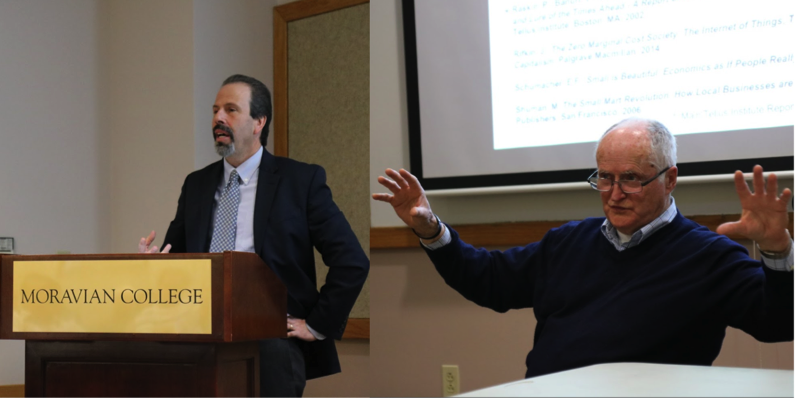
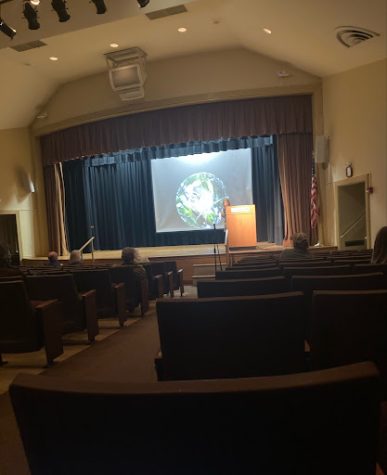

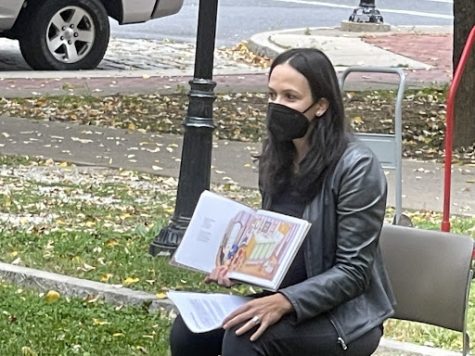




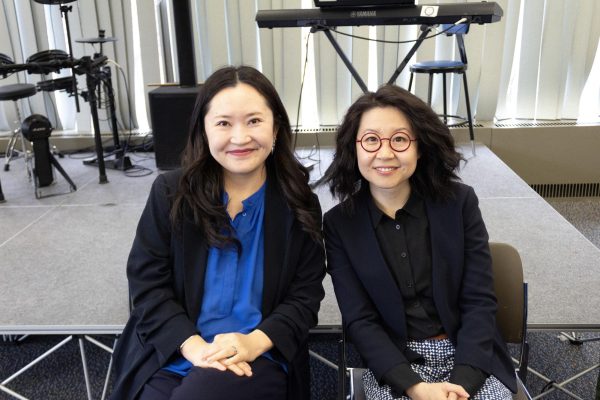
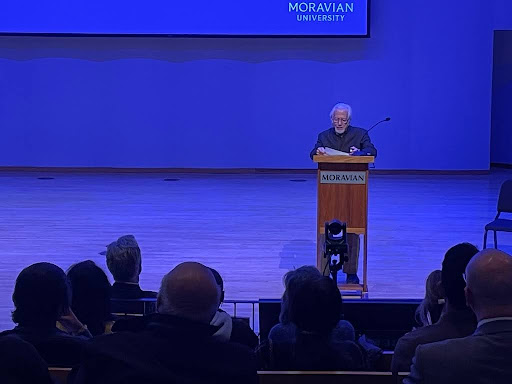
Brian W. Smith • Jun 13, 2017 at 9:29 pm
I’m glad Trump pulled out of the Paris Climate Agreement. To spend over 200 billion where the USA would pay most of it doesn’t make sense. We can reduce our carbon emissions by ourself as an individual country. Plus we need to eliminate more of these EPA job killing regulations and harness our own energy sources and become more energy independent. That’s why I’m so glad we are now using the Dakota Access Pipeline and also building the Keystone pipeline for our own energy use. We can use our own energy sources and become less dependent on Oil from countries that are against us and also do it in safe way to protect the enviorment at the same time.
Claire Kowalchik • Mar 7, 2017 at 9:43 am
A perfect summary of a very important presentation. Great job Ignatios.
Joyce Hinnefeld • Mar 4, 2017 at 11:02 am
Another interesting, informative, and important article–thank you, Ignatios. (I especially like the winking reference to “making the environment great again” in your closing line.)
don st. john • Mar 3, 2017 at 6:22 pm
The Earth is in us and we in it. It is not OUR environment (something surrounding the important center). Unless we expand the notion of Sustainability to include the Earth and its many species, we might survive but on an alien planet. What are the necessary cognitive, emotional, and spiritual transformations necessary to open our minds, hearts, and bodies to the future of the Earth. Don’t look to Trump!